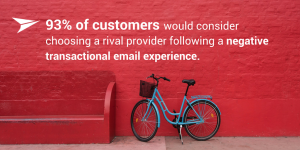How Increases In Online Ad Spend Lead To Record Cybercrime
And by the time the second two weeks in November rolled around, consumers were hitting the internet in record numbers to spend, spend, and spend some more.
Consumers went online to spend $9 billion on Black Friday and $10.8 billion on Cyber Monday — up 15.1% compared with last year, according to Adobe Analytics. This year’s Cyber Monday ended as the largest online shopping day in U.S. history.
All this online spending is good for the economy, brands and retailers, but it’s also good for hackers and scammers.
McAfee, which focuses on consumer and cybercriminal activity, says it’s time for companies to protect consumers from cybercrime and scams.
Ahead of the 2020 holiday season, McAfee commissioned 3Gem to conduct a survey of 1,000 adults in the U.S. over the age of 18 between October 8 and October 13, 2020. Similar surveys were commissioned in the U.K., Germany, France, Spain, Australia, and Indonesia. The goal of the study was to achieve a better understanding of how and where these shifts are exposing consumers to new risks.
The findings reveal that 34% of respondents ages 45 and older have fallen victim to online scams during the holiday season, losing more than $100 each.
While consumers plan to increase their online shopping this year, 37% of respondents said they’re aware of cyberattacks and risks, but it hasn’t changed their online activity and shopping. Some 17% of respondent say they click on an unknown link in an email to check the authenticity of a gift card sent to them, with 25% of respondents assume it is safe before doing so.
Some 60% of those in the United States feel cyber-scams are more prevalent during the holiday season, yet 36% are increasing their online shopping. Some 35% plan to purchase more online gift cards this year. Perhaps that’s because I’m noticing some retailers can’t guarantee their gifts will get to the recipient before the holidays or the products are sold out.
McAfee did find an increase in fake online gift cards and fake gift card scams on the dark web, putting 73% of consumers between the ages of 18 and 25, who don’t check the authenticity of gift cards. About 25% of all respondents assume gift card links are safe at risk of financial loss and or having personal details compromised.
Only 27% of respondents between the ages of 18 and 24 always check to see if holiday deals sent via email or text are authentic and trusted and less than half of all respondents check to see if they are authentic or trusted.
(35)
Report Post






